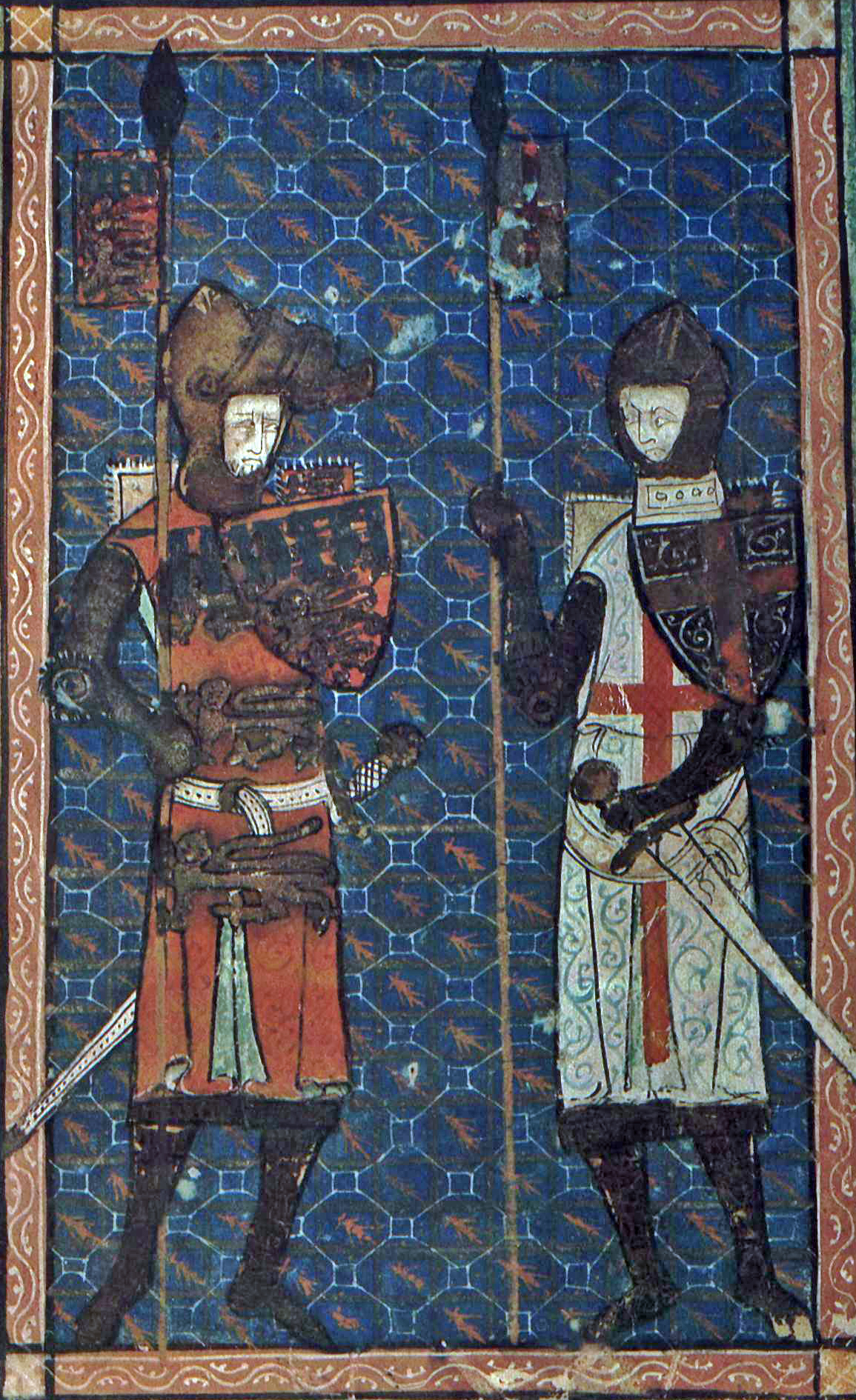Expansion and exploration was the order of the day in 13th century Europe. Led by powerful popes, anointed kings, sworn knights and crafty merchants, demographic and economic expansion resulted in a vibrant Christendom reaching further and further out.

Bodleian Douce 231, Fol 1 r. Source: Wikipedia
In the 13thcentury crusades were undertaken to export Latin Christendom into the Baltic, the Pyrenees, Andalusia, the Balkans, Greece, and – of course – the Middle East. Parallel to this, the outer limits were stretched to incorporate lesser states on the fringes like Wales, Scotland, Iceland and Finland into the dominant spheres of England, Norway, and Denmark. Sometimes these ventures were clothed as crusades. At other times, they were just obvious examples of predatory warfare.
At the same time, merchants and tradesmen from Italy and Spain worked to grow their activities in the wider Mediterranean, while the Hanseatic League pushed forward along the Russian rivers and up to the north, establishing outposts in Turku, Novgorod, Bergen, and elsewhere. Elsewhere, Germans moved to settle in Transylvania pushing the frontier into the mountains of Eastern Europe creating critical new centres for silver-mining.
The expansion was thus also the predominant characteristic of the growing cities and the fiduciary institutions of the budding transnational banks, trading networks, and trading posts, for instance, the so-called “Kontore” of the Hanseatic League. While double book-keeping was yet to come, the gradual introduction of paper at the end of the century led to an explosion in literacy. No longer were charters thought of as written historical records or testimonies of transactions. Instead, a charter gradually – as pars pro toto – came to represent the property itself. Who had the written record of a deed in their power, per definition also owned the property.
As part of this expansion, Universities were founded in Bologna, Paris, Oxford, and Montpellier to further the establishment of schools of law. Added to this list In the 13th century were Cambridge, Orleans, Toulouse, Padua, Naples, and Salamanca. In a broader European context, local laws were written down, commented upon and codified, while lawyers at the great Universities explored the ramifications of the Digest of Justinian and other Roman law-codes.
On the evangelical level, expansion was encouraged by the missionary activities of Franciscans and Dominicans. Both worked ardently to combat heresy as well as encourage lay religiosity and spiritual yearnings among lay people. Officially sanctioned by the Popes, they spear-headed the efforts to control the more wild-growing popular movements or sects like the Waldensians and Cathars.
These expansionary movements led to a renewed contact with diverse people; not just Jews, and Muslims, but also the terrifying Mongol Hordes came to play a role in the imagination of leaders as well as ordinary people.
These outward movements of growth and expansion were mirrored in the continued demographic as well as economic growth until the crisis struck at the end of the 13thand the beginning of the 14thcentury.
In this world, anointed kings, crowned emperors, and sworn knights played a significant role while embodying (more or less successfully) the chivalric code of honour.
The cost, however, obliged these powerful men to ground their authority in popular assemblies – such as the Corts or Cortes in Aragon-Catalonia, the Parliament in England, and the Danehof in Denmark. As part of this process, kings came increasingly to rule over territories less than people. In this context, the formation grew of dynasties as international networks. To some extent, this fostered the production of the huge codified “national” histories in Spain, England, France, Scandinavia and elsewhere; as well as the lesser chronicles of events written by crusaders, travellers, and merchants.
The post 13th century Europe – Expansion and Exploration appeared first on Medieval Histories.
Powered by WPeMatico